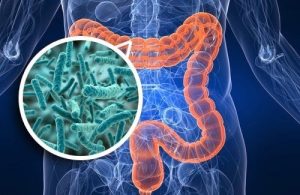We’ve all heard of heart transplants, or kidney or liver transplants, but feces transplants? While it may sound gross, recent research has found promising results in the benefits of fecal transplants on children with autism.
The Reasoning
Autism is a brain disorder typically characterized by certain behaviours, such as hyperactivity, repetitive actions, and irritability. Children with autism also suffer from multiple stomach problems as they tend to have fewer types of microbes, which are microorganisms like bacteria, living in their intestines. In fecal transplants, the children with autism receive new microbes from other peoples’ feces, and recent studies have seen improvements in their stomach distress as well as in behaviours linked with autism.

Millions of microbes are present in the intestines, creating the gut’s microbiome. Source: https://medium.com/
The Evidence
Rose Krajmalnik-Brown, an environmental engineer at Arizona State University, and her research team found a large difference in the microbes of children with autism, in fact they completely lack one bacteria called Prevotella. These results prompted the team to do further research into microbes and their potential affects on autism.
The research team conducted a clinical trial with 18 children with autism to investigate if having more diverse microbes might improve any stomach or behavioural symptoms. The first step was to give the patients antibiotics to kill all of the bacteria currently in their intestines. Then, the researchers isolated the microbes from healthy peoples’ feces and each patient was treated with these fecal bacteria for 8 weeks. It was delivered either as a liquid injected in the patient’s rear or orally mixed in with chocolate milk.
After two months of the treatment ending, they found that most children reported less stomach problems. Even after two years, their gut symptoms were 60 percent better than before treatment started and their microbes were even more diverse. Furthermore, the feces transplant didn’t just affect the gut; they also found significant improvements on behaviours associated with autism. The childrens’ levels of hyperactivity and repetitive actions tended to be lower two years later than before the treatment started.
The following video provides more information on how the gut microbes affects autism.
Source: Nutrition Facts

What Does This Mean?
While these results are promising and exciting, researchers don’t want to get too hopeful yet. This study was quite small and might not work for everyone, so future research is definitely on the horizon. As of now, scientists only know confidently that a correlation between receiving new fecal microbes and improving autistic behaviours exists; they do not know that fecal transplants themselves cause the changes in behaviour. Neuroscientist Michael Hylin states that these findings “are a long way from saying there’s a cure for autism. I think it’s a promising approach. It’s one that’s worthwhile.” Although this is just one small study, the results are exciting and have sparked a lot of optimism and interest in the field of autism research. Stay tuned- fecal transplants may very well be the next big thing!
By: Olivia Campbell

One response to “Fecal Transplants- A Possible Autism Treatment?”